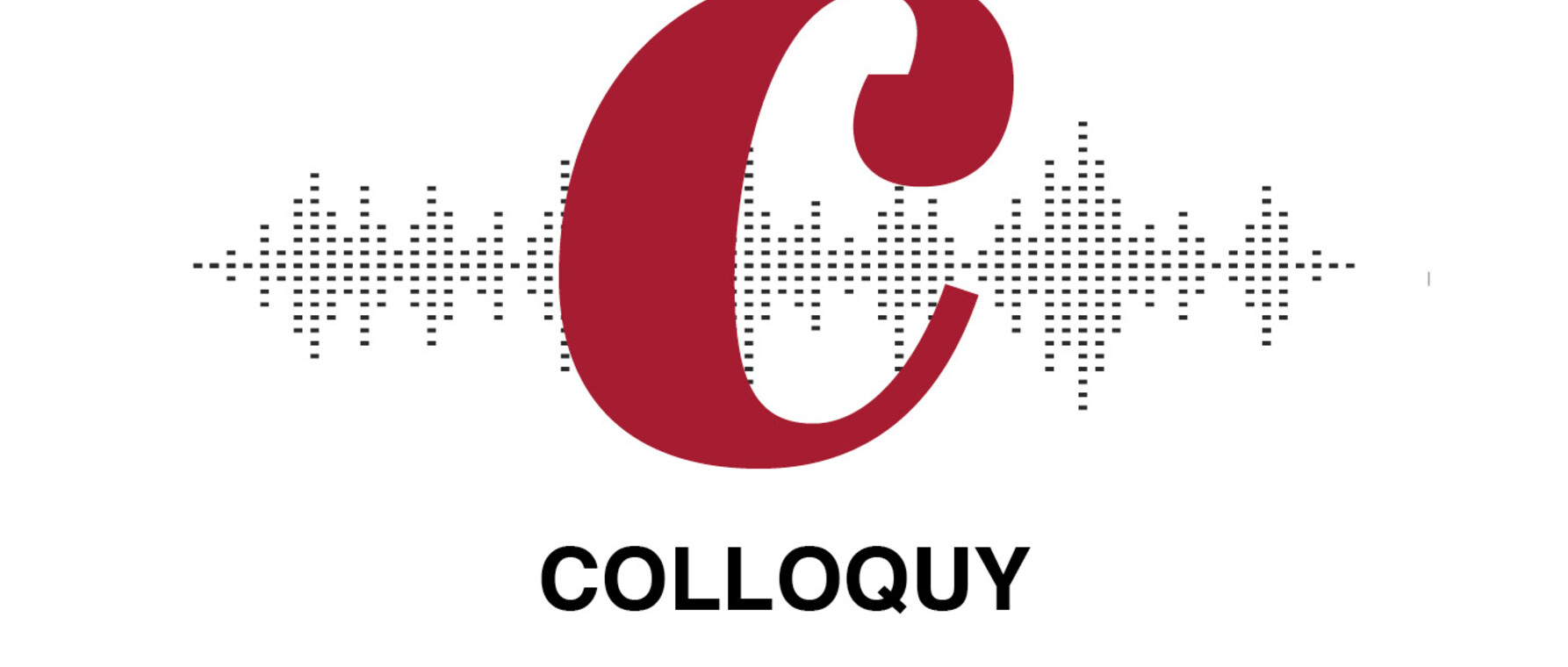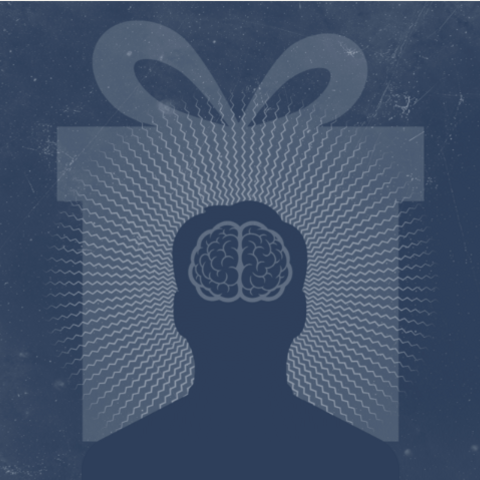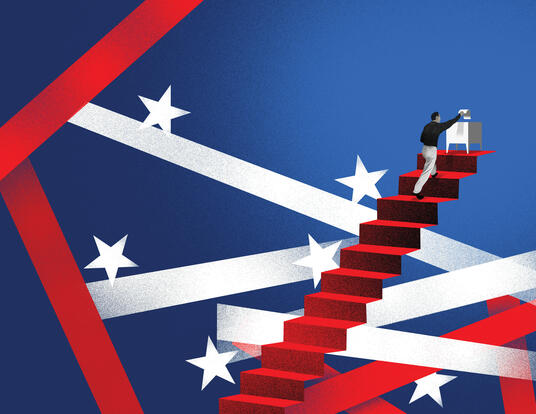Colloquy Podcast: Beyond the Massacres, Part II

In this episode of Colloquy, part two of our discussion of guns and public health in America. In part one, we got a sense of the scope of the problem: nearly 400 million guns owned by US civilians, over 45,000 gun deaths in 2020, dramatically elevated risk of suicide among people who own handguns, and much more.
So can anything be done about the problem in a society as politically polarized as ours? David Hemenway, one of the country's leading experts on guns and public health, says yes. If we set aside our prejudices and assumptions and focus on areas of common concern, we can work together to improve safety and public health—even in places where gun rights are sacrosanct. But Hemenway says we shouldn't stop there. There's plenty to be done in states like Massachusetts, where guns are more strictly regulated.
David Hemenway is a professor of health policy at the Harvard T.H. Chan School of Public Health and director of the Harvard Injury Control Research Center. The author of five books, Professor Hemenway, has written widely on injury prevention, including firearms, violence, and suicide. He headed the pilot for the National Violent Death Reporting System, which provides detailed and comparable information on suicide and homicide. In 2012, he was recognized by the Centers for Disease Control and Prevention as one of the 20 most influential injury and violence professionals over the past 20 years. Professor Hemenway got his PhD from GSAS in 1974.
This transcript has been edited for clarity and correctness.
Let's pick up where we left off last time. Is the rate of gun ownership today lower than it was in the 1970s?
Most of the evidence indicates that about half the US households had guns and now it's probably 40 percent. But it went down. And in the last couple of years, it's gone up.
Right. And now we have nearly 400 million guns in private hands in the US, according to the Geneva-based Small Arms Survey. Is that just too many guns to do anything about?
So, a lot of things. First, to note that only maybe 2 to 3 percent of the US population owns over half the guns. So it's not like everybody owns one or more guns. If we did anything like any other developed country, we would do better. There's no question about that.
If we had no cigarettes, we would do better about cigarette smoking and cancer and heart disease. But that's not a good policy. Nobody thinks to ban cigarettes.
We're going to have lots of guns. The fact that we have more guns each year probably makes it a little harder, but it doesn't make it nearly impossible at all to have really good policies. We can do so many things. We can do so many things to reduce violence generally and reduce mental health problems in terms of suicide.
Cathy Barber in our group, she got herself invited to Utah, which is the gun training capital of the United States. This very red state. And she went and she got herself invited to [a meeting with]this group of gun trainers who trained for concealed carry. And she said to them, “You know, you're doing such a good job trying to reduce unintentional firearm deaths,” which may or may not be true. But then she said, “Do you realize that in Utah, for every unintentional firearm death, there are 85 gun suicides?” And they said, “Is that right? That can't be right.” And she said, “Well, raise your hand if you know someone who unintentionally died in a firearm death,” and a few hands go up. And then she said, “Raise your hand if you know someone who killed themselves with a gun,” and every hand goes up.
Then she says, “Could we work together and try to reduce that? What if we worked together and created a module for when you train these prospective gun owners and gun carriers, we train them something about suicide. And would you use that?” They said, “Well, let's see. Let's work together and see.” So, she creates this module, and they love it. They just think it's the greatest thing because it’s the equivalent of “friends don’t let friends drive drunk.” It’s “friends don't let friends who are going through a bad patch hold on to their guns.” So, it's now become the 11th commandment of gun safety, which is the notion of if your friend is, you know, getting a divorce and is drinking and is talking crazy, you should know that it's your responsibility as a good friend to, in their words, “babysit his gun” for a while until he gets a new girlfriend and things get better. And then he can get his gun back.
The evidence is very clear that suicide episodes come and go and, you know, we understand that in some sense because in prisons we have suicide watches. We know that often when you first get into prison for the first week or so, you're at high risk for suicide and then you go back to normal. And that's sort of true for so much of the time in suicides. If you get time and distance between the individual and the gun…it's so lethal, there's no second chance. The case fatality rate is over 90 percent. Medical care has gotten better and better. They can save people but they can't save you when you blow your brains out.
So, [the firearms trainers in Utah] said, “You know, we ought to get everyone to use this module.” And then they were talking about, “How can we do that? We have to explain to everybody.” And they thought and said, “Let's make it mandatory. We know everybody in the legislature in this red state. We tell them that everybody who's training needs to have the suicide module.” And so, they have this. It’s mandatory in Utah, this red state.
Then they said, “We want to learn more.” So, they got the legislature in Utah to put aside money for the study of the problem. And one of the things they did is they said, “Okay, we really want to have linkages.” And so, for the first time ever in data linkages, we are able to look at, [for] every suicide and attempted suicide, the medical records.
They also had this great idea for a PSA. It's one of the most compelling public service announcements I've ever seen, which is this 30-second announcement. You have this [gun owner] who's [at a shooting range] with his gun. And then he turns to the camera, and he says, “You know, last year things were just really going bad in my life. I was going through such a bad patch. And my friends, they babysat my guns for a while until things got better. And, you know, I think they saved my life.” And then he goes back to shooting.
It's such a success story. It's just this incredible thing. It's not only, you know, all guns are dangerous. Here's a simple thing that doesn't involve the government at all, that people can do to help each other to try to reduce some of the gun violence, in this case, the gun suicides. We just have so many gun deaths, which are really unneeded.
That's an impressive success story about guns and suicide. What else could help?
There are so many things we can do about guns, the same way we did about automobiles. We made automobiles safer. And it wasn't one thing that made a difference. It was like 50 different things. And so now, our fatality rate per mile driven is about 85 percent less than it was when I was young. And I could list all the things we could do.
I mean, the things that come to mind for most people are good things like licensing of gun owners and registration of handguns, getting rid of, I think, so many of our military weapons which aren’t, you know, useful for very much except for mass killings. But there are so many things the government could do.
We should have much better data. When you have better data, you know what the problem is and how to approach it.
We should have more money for research. The government should do more about things like research and development itself.
We should have safety standards. The reason we have fire-safe cigarettes, which reduce fires in the United States, is because the federal government helped write safety standards, otherwise we couldn't have had mandatory safety standards at the state level.
The government is a big purchaser, so it ought to help not only create and do research on but [also] purchase things like smart guns—guns which, if somebody steals them, they can't use them. Years ago, I had my car radio stolen. The next car I bought had a little sign in the window that said, “If you take the radio out of the car, it won't work.” There is something like 350,000 guns a year which are stolen in the United States and clearly often get into the wrong hands. With smart guns, it wouldn't make any sense to steal the guns.
There are so many things that the manufacturers should do that we might have to force them to do. Like we had to force the automobile manufacturers to put in seatbelts in cars. They refused to do that initially. We had to force them to put airbags in cars. They didn't want to do that.
I've done lots of reading on all these unintentional firearm deaths, which are just so horrible to read, but so many are children. And when you read them, then you can understand what's going on.
So, it turns out in the United States that two-to-four-year-olds have a higher likelihood than younger children and slightly older children to die unintentionally of a firearm death. And as opposed to most of the other children, the two-to-four-year-olds shoot themselves. We had a similar problem years ago with two to four-year-olds finding aspirin and taking too many tablets and dying. And we solved that problem not by blaming the kid, not by blaming the parents, not by, you know, trying to exhort everybody. We solved it by creating child-safety aspirin bottles that people my age can open but two-to-four-year-olds don't know how.
Wesson of Smith & Wesson fame created child-safe guns because he was worried 120 or so years ago that children would get access to guns and kill themselves or kill each other. It was really easy what he did, but 120 years later, we could do much better. But what he did is he made it so that when you wanted to fire a gun, you had to not only pull the trigger but just put a little pressure on the handle. And two-to-four-year-olds can't figure out how to do two things at once—like they can't figure out how to push down on the top of the aspirin bottle when they turn it.
Reading these reports about the unintentional firearm deaths of children…I think at least over half the situations are somebody finds their dad’s semiautomatic, they take out the magazine—here are all the bullets in one hand, the gun’s in the other—they think the gun’s unloaded and they pull the trigger and there's a bullet left in the chamber. And typically, it goes off. And mostly nothing bad happens but sometimes they kill their best friend or their younger brother.
And again, what can we do? We could blame the kid, we could blame the parents, or we could solve the problem, and the easy way to solve the problem is the technical fix—make it so that when you take out the magazine, the gun wouldn’t shoot.
There was some progress of a kind recently in Congress after the Uvalde shooting. There was the Protecting Our Kids Act, which is supposed to provide for an increased age limit on the purchase of certain firearms arms, prevent gun trafficking, modernize the prohibition on untraceable firearms, encourage the safe storage of firearms. So, will this law make a difference in public health? And are you hopeful it could signal a shift in the politics of public health policy around guns?
I think will make a little difference. It's not going to be a marked difference. It's going to be hard to see exactly what the difference is in terms of fatalities. But I think the big thing is that it hopefully is an indication that things are changing politically, things are changing socially. So, for example, there is like a 20-year period where Democrats refused to talk about guns and now, finally, they're beginning to talk about them. There is, slowly, better data. There's now, for the first time, some real money for research—not nearly enough, not nearly commensurate with the problem, but the federal government is giving some money for research.
There are different groups which are doing things, and that's really the public health approach, to get everyone involved because everyone can make a difference. So, there are lawyer groups, which are helping defend against these Second Amendment lawsuits, which are trying to get rid of all gun regulations. There are different companies which are trying to do different things. So certain gun sellers are trying to say, “Okay, we're going to really try to make sure that there's no ‘straw purchasing,’” where you're buying a gun for someone who shouldn't be allowed to. And there are effective ways to do that, and there are completely ineffective ways to do that. The same way there are effective ways to try to prevent 16-year-olds from buying alcohol. And there are completely ineffective ways. And so, you want to figure out what's effective and really try to get everyone to be on the same page. So, I would say that the good thing is that maybe there's a suggestion that we're moving in the right direction. But I mean, this is like a tiny little step, I would say.
We live in Massachusetts where we have a relatively low rate of gun ownership and, compared to the rest of the country, more stringent gun laws. But is there anything that we ought to be doing here? I mean, even on the level of cities and towns? What can we do?
There are so many things we can do.
One of the things to recognize is that, yes, we do better than most of the other states, but we do much worse than almost all the other high-income countries. We would do much better if it wasn't so easy for guns to move from states which have weak laws and lots of guns like Maine and New Hampshire and up I-95, because most of the guns used in crime in Massachusetts and in homicide in Massachusetts don't come from Massachusetts.
I think there are some states, for example, which provide money for gun research…someplace like New Jersey and California. And we could be doing that. We could try to create a better data system in Massachusetts than we have. We could make the data more readily available to researchers. But there are also certain laws we could pass…Giffords has this incredible list of every state and every [gun] law that it has and what would be nice for each state [to do] to improve laws to make it less likely that someone is going to be killed.
This is Congresswoman Gabby Giffords.
Yes, her group. Yeah. I think, for example, we don't have background checks for people who are selling guns. It's like, why not? That’s one way the wrong people get guns. They get them through straw purchasers, or they steal them from gun shops. And if it's an inside job, it's a lot easier.
So final question: Can we really work together to reduce gun deaths and trauma, as your colleague did in Utah? We're just emerging from a two-year period where people thought wearing a mask or getting vaccinated was an intolerable infringement on their personal freedom. Is it impossible to break through people's information ecospheres, or do we simply need to meet people where they are and work with them on problems we can all agree on?
Yeah, I think the latter is really important. Too many people are approached [in terms of] “You're the problem,” or “You're part of the problem,” rather than “You're part of the solution.” And when they’re approached as part of the solution…things can really change. And they are so helpful because they know how to talk to other gun owners. It's not only the message, but it's the messenger that really matters. And most of these people are not going to pay any attention to…what some Harvard study says. That's sort of crazy. But if you can find the right people now—it's not the people who are running the lobbies because they have a very different interest—but if you can find reasonable people and work with them—and that's what we've been trying to do—you can make a big, big difference. There are so many reasonable gun owners and gun sellers and gun trainers trying to figure out ways to work together in common interest to reduce the huge gun problem we have in the United States.
The Colloquy podcast is a conversation with scholars and thinkers from Harvard's PhD community on some of the most pressing challenges of our time—from global health to climate change, growth and development, the future of AI, and many others.
About the Show
Produced by GSAS Communications in collaboration with Harvard's Media Production Center, the Colloquy podcast continues and adds to the conversations found in Colloquy magazine. New episodes drop each month during the fall and spring terms.
Talk to Us
Have a comment or suggestion for a future episode of Colloquy? Drop us a line at gsaspod@fas.harvard.edu. And if you enjoy the program, please be sure to rate it on your preferred podcast platform so that others may find it as well.
Get the Latest Updates
Join Our Newsletter
Subscribe to Colloquy Podcast
Simplecast





